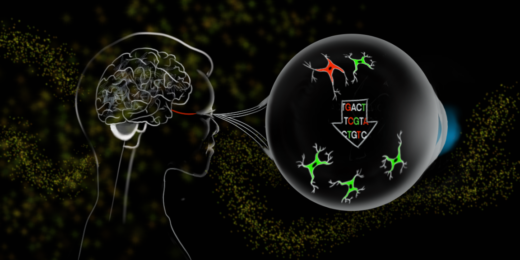Often misunderstood and undertreated, bipolar disorder has received close attention from Stanford Medicine clinicians and researchers for more than 30 years.
Category: Innovation & Technology
Large language models in the clinic: AI enters the physician-patient mix
Stanford Medicine doctors and researchers are modifying existing chatbots to perform well in a frontier of AI-enhanced medicine: the doctor-patient interaction.
Match Day 101: How does the medical residency match work?
Graduating medical students go through an unusual springtime ritual known as Match Day to find out where they’ll continue their training. Here’s everything you wanted to know about the big day.
What really happens to our memory as we age?
A Q&A with a Stanford neuroscientist on dementia, healthy aging and memory loss — and how we can protect our brains in later life.
Not all about neurons: A new avenue for treating neurodegeneration, injury
Stanford Medicine's Jeffrey Goldberg believes a young, underexplored class of therapies called gliotherapeutics, which target and harness glia, will ultimately provide important new directions for treatment.
How the death of his wife drives data scientist to improve the system
In his grief over losing his wife, Amir Bahmani realized how much data science could impact medicine and potentially save lives.
At the intersection of science and humanity, he found a sweet spot
Medicine has been the way of connecting both of Brian Smith's passions. “With medicine I could have the intellectual curiosity, but also the chance to talk with people and enjoy the human experience.”
New cardiovascular risk calculator includes social determinants of health, excludes race
Many social determinants of health can influence a patient’s risk, but Palaniappan and fellow researchers have noticed, from working with data from patients around the nation, that race is not among the most accurate or equitable.
The hunt for a vaccine that fends off not just a single viral strain, but a multitude
Stanford Medicine researchers are designing vaccines that might protect people from not merely individual viral strains but broad ranges of them. The ultimate goal: a vaccine with coverage so broad it can protect against viruses never before encountered.
Feeling lonely? You’re far from alone: Expert advice on how to get reconnected
A loneliness prescription? Anna Lembke says 'Action. Don’t be passive. Do at least one thing each day that makes you feel more connected to other people and the world.'
How digital tools are heading off alcohol-related health problems
Two of Brian Suffoletto's close friends died in an alcohol-related car accident when he was in college. It helped focus his path in medicine.
Emergence program provides socially conscious entrepreneurs an on-campus incubator
Emergence comprises some 100 experts, serving as speakers, advisors or mentors, that guide how to identify societal needs and carry out the entrepreneurial process.
The time ‘is now, in the beginning’: How do we ensure AI tools aren’t biased?
New artificial intelligence tools have the potential to revolutionize health care. But Stanford researchers argue that disparities could worsen without intervention now.
AI, medicine and race: Why ending ‘structural racism’ in health care now is crucial
Health care providers must reckon with inherent race-based biases in medicine, which can reinforce false stereotypes in algorithms and lead to improper treatment recommendations or late diagnoses.
Why precision medicine leads to better diabetes care
Improvements in treatment technology are helping physicians deliver individualized care to their Type 1 diabetes patients.
How to regulate AI? Bioethicist David Magnus on medicine’s critical moment
The applications for AI in medicine are being explored deeply at Stanford Medicine and elsewhere. Putting guardrails in place now is crucial.

















